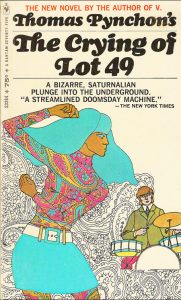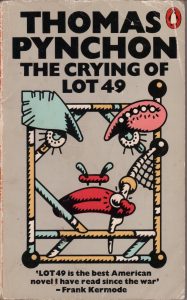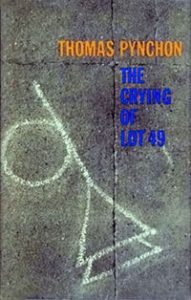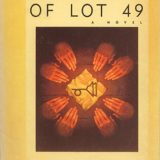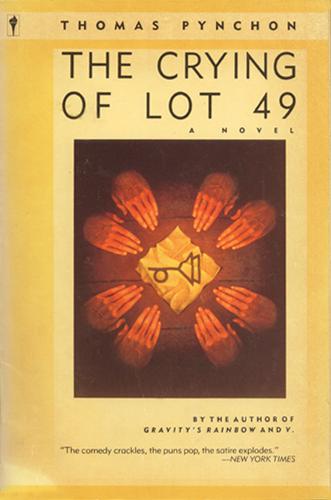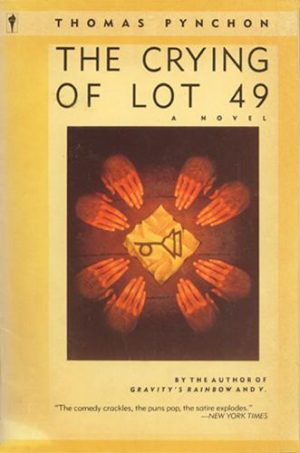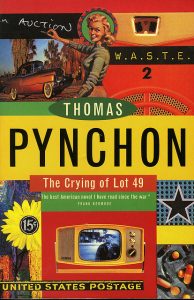
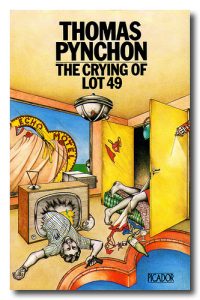
Reviewed by: Bill Stratton Date: 29 December 2001
If you’ve always heard the term postmodern and wondered what it meant, this is the book is for you. However, let me warn you, The Crying of Lot 49 is definitely not for everyone. The plot is unique and very complex to say the least and the characters are not what you will find in most novels, but then again, neither is the intellectual stimulation.
In little over 100 pages, Thomas Pynchon, the author of the postmodern behemoth Gravity’s Rainbow, has written an accessibly manageable introduction to postmodern literature. The plot revolves around the exciting and often bizarre experiences and wanderings of Oedipa Maas, as she embarks upon a surrealistic journey into the unfamiliar techno-industrial pop culture wasteland of San Narcisco after being named executor of her ex-lovers will. In her madcap adventures she uncovers a bizarre world where everything that she has ever learned is called into question. It is a world where nazi doctors, secret societies, papal misdeeds, anarchist dreamers, narcissistic ex-child actors, and deranged outcasts all come out of the shadows to invade the “typical” suburban landscape of an average American housewife. Although, at times The Crying of Lot 49 can be rather dense, as the simulacra of Oedipa Maas’ familiar world crumbles and gives way to the unsettling void of San Narcisco and the Trystero conspiracy, Pynchon is heralding the implicit message of Postmodernism, the destruction of all metaphysical foundations and the end of grand narratives. As the plot careens through an unfamiliar world of paranoia, conspiracy, obscure facts and information from seemingly every conceivable specialty of knowledge, the reader almost feels as though they too have been thrown into the deeply unsettling world alongside Oedipa Maas as she faces the unimaginable absurdity of a conspiracy within a conspiracy, which is after all our own projection history and reality itself.
Through, The Crying of Lot 49 could well be called a novel of cruelty, in that it shares many similarities to both Artaud’s and Beckett’s conception of the theatre, it is an enjoyable and challenging way to acquaint oneself with one of the most misunderstood genres of modern literature. Just be sure to keep a dictionary, encyclopedia and sourcebook to secret societies and anarchism handy. The Crying of Lot 49 is concerned with uncovering the realities, or lack thereof, which most people would rather keep hidden, or at the least forgotten. This work is about questioning the most basic assumptions that we all hold dear, even if it means coming to terms with a world that is without meaning, order, and most of all, without a coherent design. The Crying of Lot 49 is a novel that asks many questions, so if you welcome an intense intellectual challenge and harbour a desire for obscure knowledge this book will certainly not disappoint. And if you don’t quite understand it read it the first time, just read it again…
